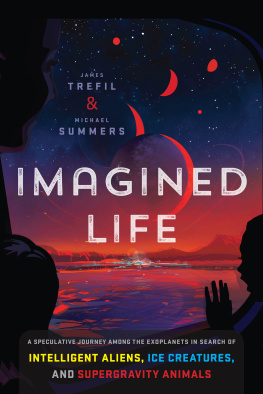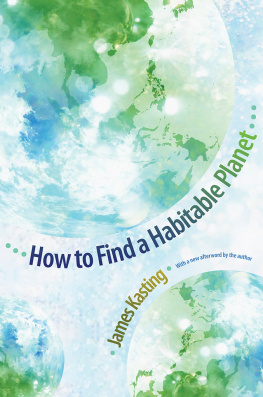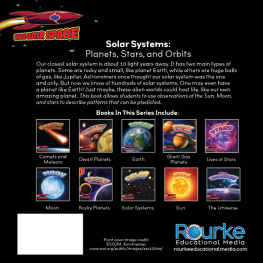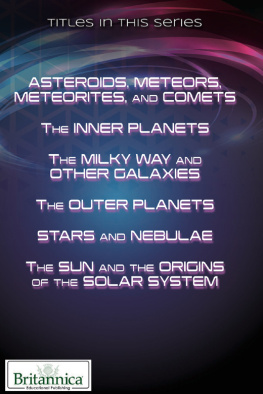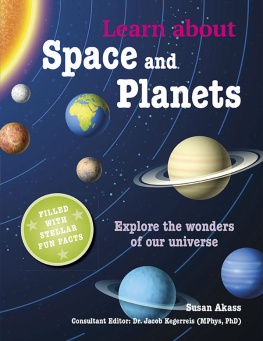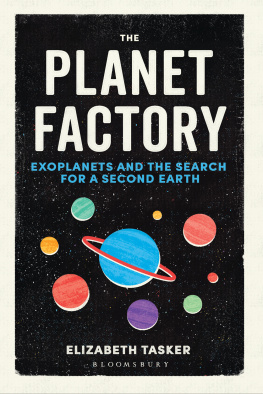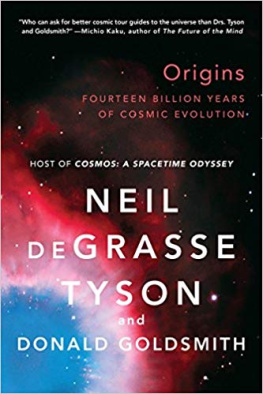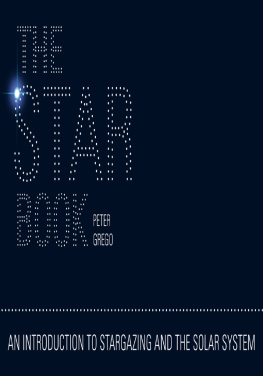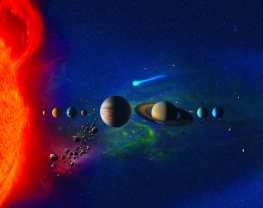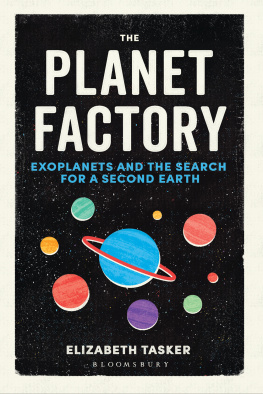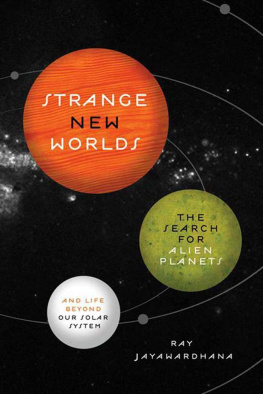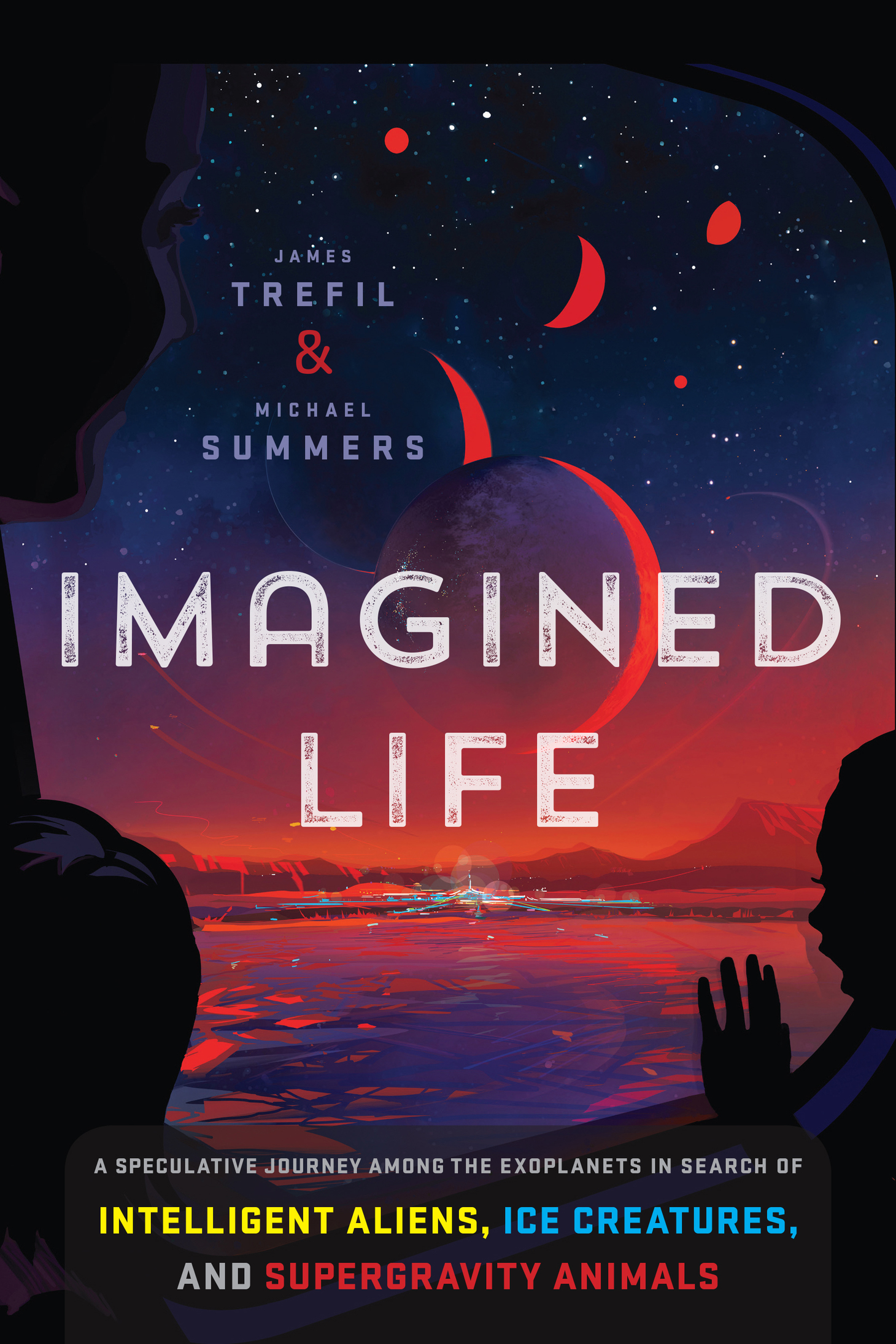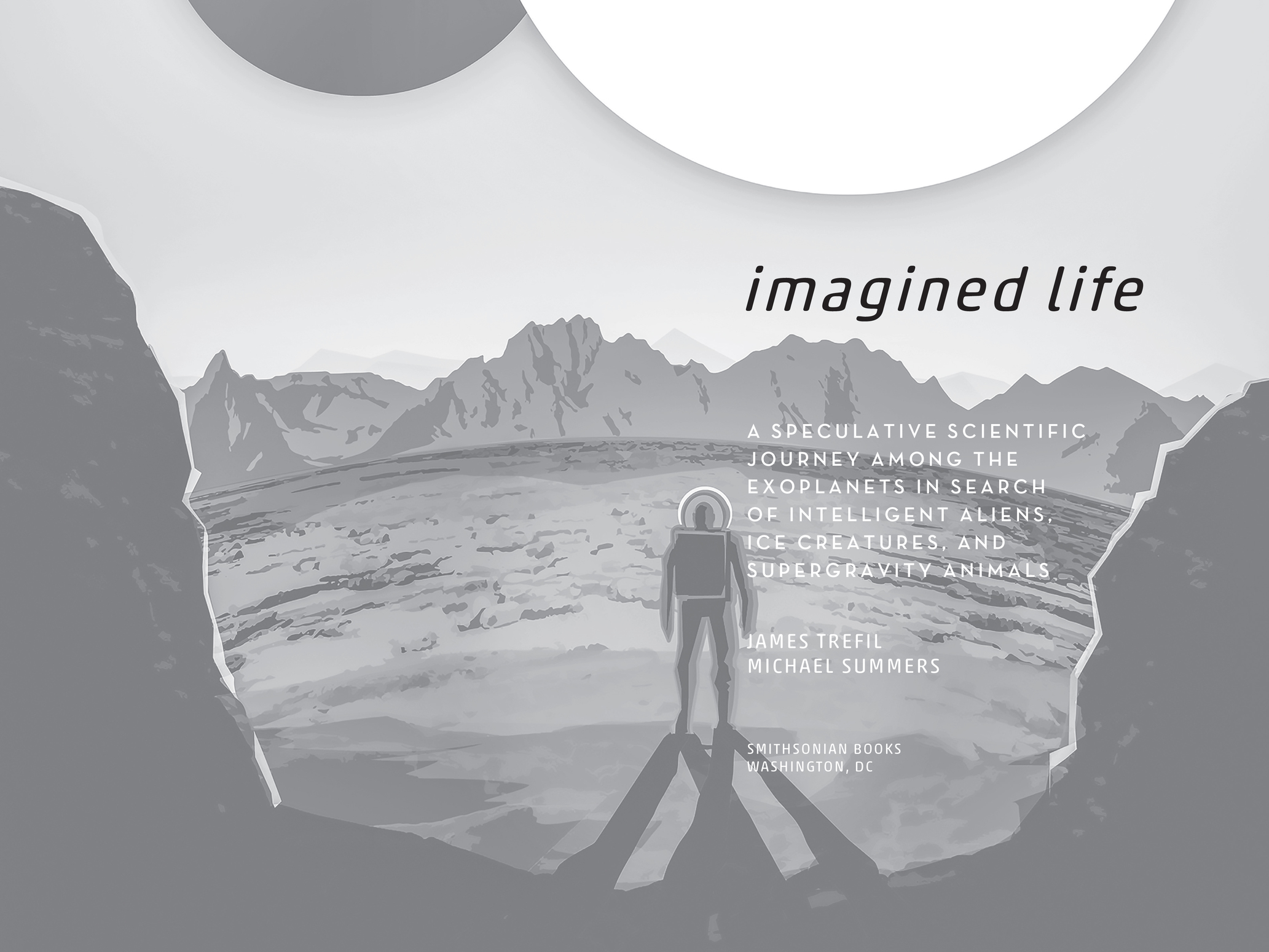Contents
Landmarks
Print Page List
2019 by James Trefil and Michael Summers
All rights reserved. No part of this publication may be reproduced or transmitted in any form or by any means, electronic or mechanical, including photocopying, recording, or information storage or retrieval system, without permission in writing from the publisher.
This book may be purchased for educational, business, or sales promotional use. For information, please write: Special Markets Department, Smithsonian Books, P.O. Box 37012, MRC 513, Washington, DC 20013
Published by Smithsonian Books
Director: Carolyn Gleason
Creative Director: Jody Billert
Senior Editor: Christina Wiginton
Editor: Laura Harger
Editorial Assistant: Jaime Schwender
Edited by Juliana Froggatt
Ebook design adapted from printed book design by Jody Billert
Library of Congress Cataloging-in-Publication Data
Names: Trefil, James, 1938 author. | Summers, Michael E., author.
Title: Imagined life : a speculative scientific journey among the exoplanets in search of intelligent aliens, ice creatures, and supergravity animals / James Trefil and Michael Summers.
Description: Washington, DC : Smithsonian Books, [2019] | Includes index. Identifiers: LCCN 2018047097 | ISBN 9781588346643 (hardcover : alk. paper) | ISBN 9781588346735 (ebook)
Subjects: LCSH: Life on other planets. | Extraterrestrial beings. | Extrasolar planets. | Habitable planets.
Classification: LCC QB54 .T74 2019 | DDC 576.8/39dc23
LC record available at https://lccn.loc.gov/2018047097
Ebook ISBN9781588346735
For permission to reproduce illustrations appearing in this book, please correspond directly with the owners of the works, as seen in their captions. Smithsonian Books does not retain reproduction rights for these images individually or maintain a file of addresses for sources.
Images on chapter opening spreads are drawn from artwork by NASA and the Jet Propulsion Laboratory at the California Institute of Technology.
v5.4
a
We dedicate this book to everyone who is living with multiple sclerosis or Parkinsons disease.
Dont give up.
contents
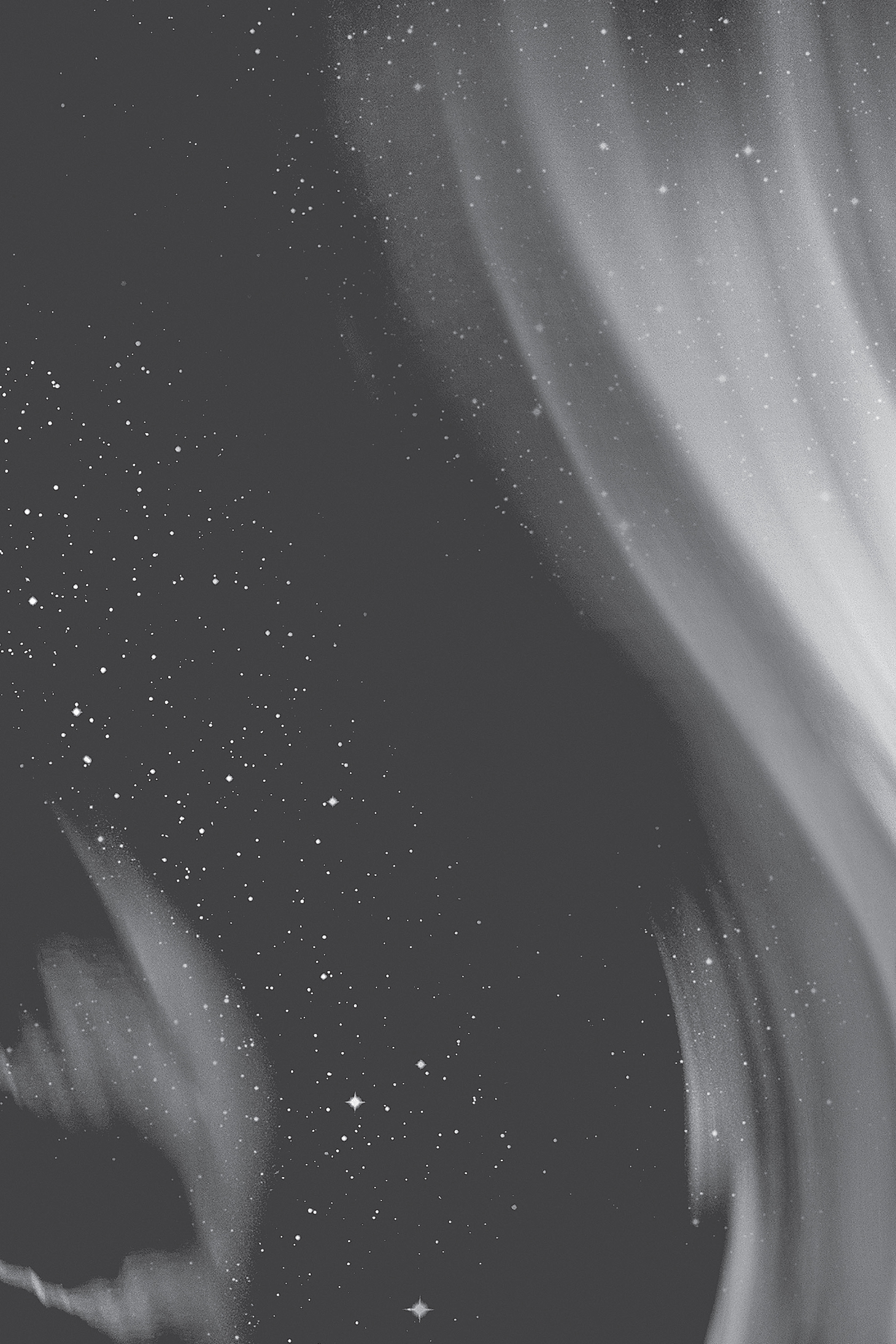
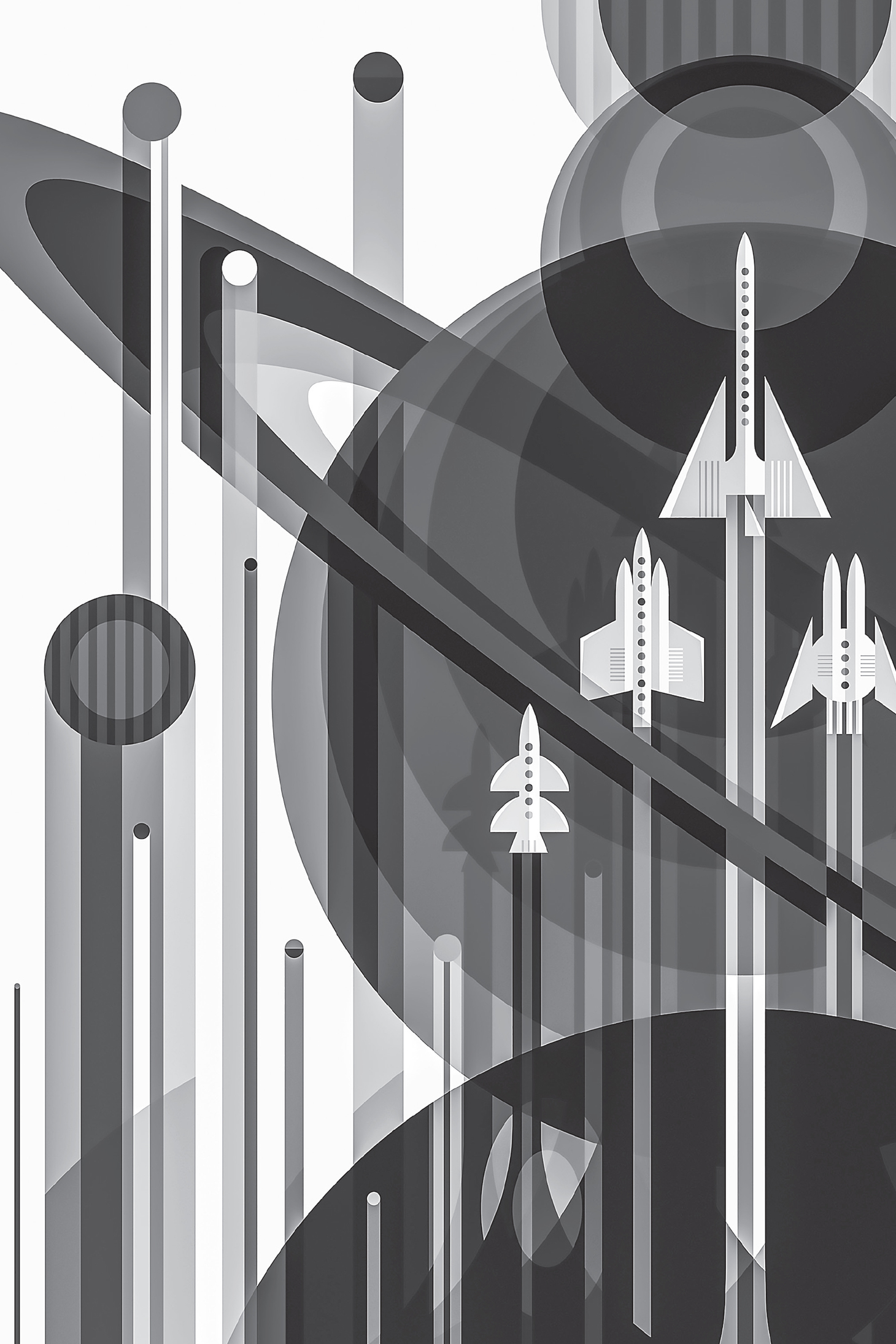
THE UNEXPECTED GALAXY
It seems that every day we discover something new and exciting about the universe. Astronomers are finding new planetsand whole new planetary systemsat a rate so fast that its hard to keep up with the news. The media are full of stories about new planets, new features of our own world, and new ways that our universe is continuing to surprise us. We would like to take this excitement one notch higher by asking you to think about what sorts of living things may be sharing our galaxyand our universewith us. We want you to imagine just what else, besides ourselves and the plants and animals we know, might be living out there, on those new worlds our scientists are finding at a dizzying pace. To help you get started, lets do a bit of arithmetic.
Doing the Math
We live in a galaxy that has more planets than stars. This is not a surprising statement until you realize that there are an estimated 300 billion stars in our home galaxy, the Milky Way. Thats 300,000,000,000 stars, which is an awful lot of zeroes. Just one of those stars, our own Sun, has more than 100 planets, moons, and large asteroids in its system. Each member of this collection has unique characteristics, and many of them are potential homes for life. If this situation is typical of other stars, then there must be 30 trillion such objects in the galaxythe sort of number encountered only in astronomy and in computing the national debt.
Of those possible 30 trillion objects, we have identified fewer than 4,000 so fara tiny fraction of whats out there. Yet as our book Exoplanets (Smithsonian Books, 2017) documents, this tiny fraction includes worlds whose diversity beggars the imagination. There are worlds that orbit inside the atmosphere of their star, worlds covered with water, worlds wandering in cold space without a star to shine in their sky. We can only stand in awed anticipation of what we will discover out there as time goes on and our instruments get better and more precise.
But the numbers tell us something else. Conjure up in your mind, if you will, a weird worldperhaps a world totally unlike any weve found so far. Maybe your imaginary world has a high concentration of an unusual element, such as ytterbium. Maybe its the moon of a rogue planet, drifting forever in the dark of space. Or maybe its like Earth, with life teeming on its land and in its surface oceans. Suppose further that your imagined world is really unlikelymaybe its density is less than that of water, or its made of solid iron. Suppose the odds against your planet even forming are a million to one (for reference, thats about the same as the chance that youll get hit by lightning this year). Even with those high odds against your worlds existence, you can expect to find roughly 10 million just like it in our galaxy alone. Boost the odds against your world to a trillion to one, and the number of planets like your unusual one drops to only 10,000. No matter how strange your imagined world is, as long as it satisfies the laws of physics and chemistry, something like it probably does exist out there, given the huge number of planets in the galaxy. In fact, we can turn the preceding sentence into a guiding principle for our discussion:
If you can imagine a world that is consistent with the laws of physics, then theres a good chance that it exists somewhere in our galaxy.
If the above numbers arent impressive enough, just remember that there are billions of galaxies like ours in the universe, each of which presumably has the same complement of planets.
What Does This Tell Us about Life?
Given the incredible diversity of planets, we should expect to find a similar, or even higher, level of diversity and variety among the life that might exist on those worlds as well. This raises a problem for us, because we are familiar with only one form of life: life thats like us, meaning that its based on the chemistry of carbon-containing molecules and requires liquid water. All of Earths biodiversity is the result, essentially, of one experiment conducted in just one of the countless laboratories of the universe, and because of this, our planet offers us very little concrete guidance in thinking about the enormous complexity we expect to find in the Milky Way. Yet its all we have, and so we will have to exploit our limited knowledge as best we can.
Well start our investigation into the forms life might take in the galaxy by looking at what we call the rules of the game: the basic principles that have made life on Earth what it is. We argue that the most important of these principlesevolution by natural selectionshould operate in almost every other environment in the galaxy. The second great principlethat life is based on the chemistry of carbon atomsis probably less universal. Nevertheless, because its easier to grasp the familiar, we will hold on to carbon chemistry as long as we can.

